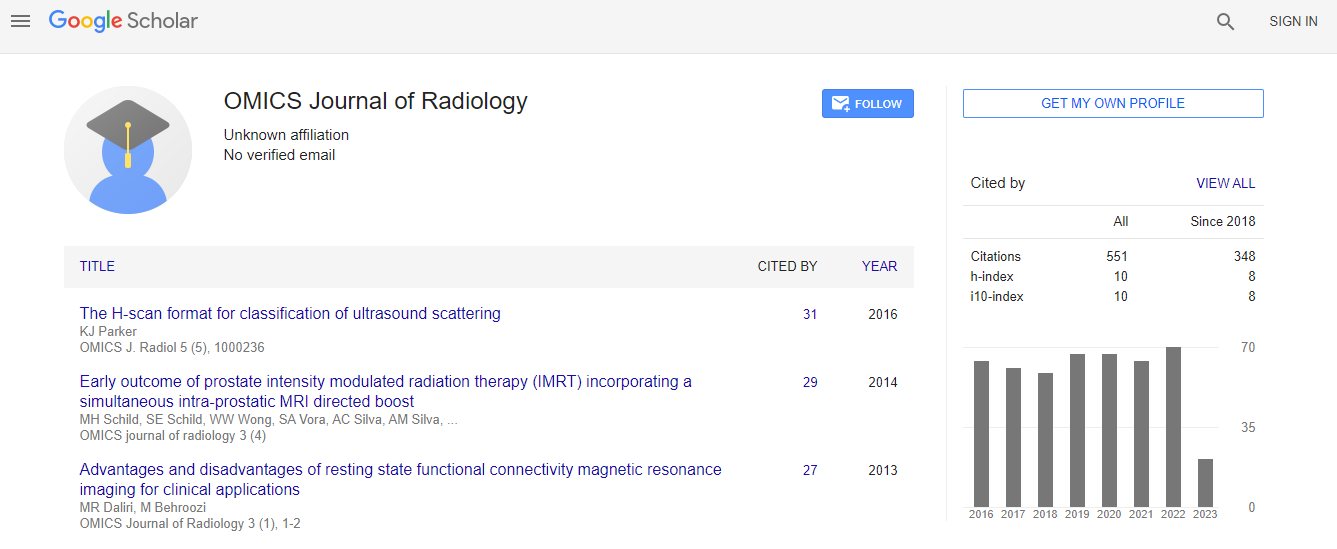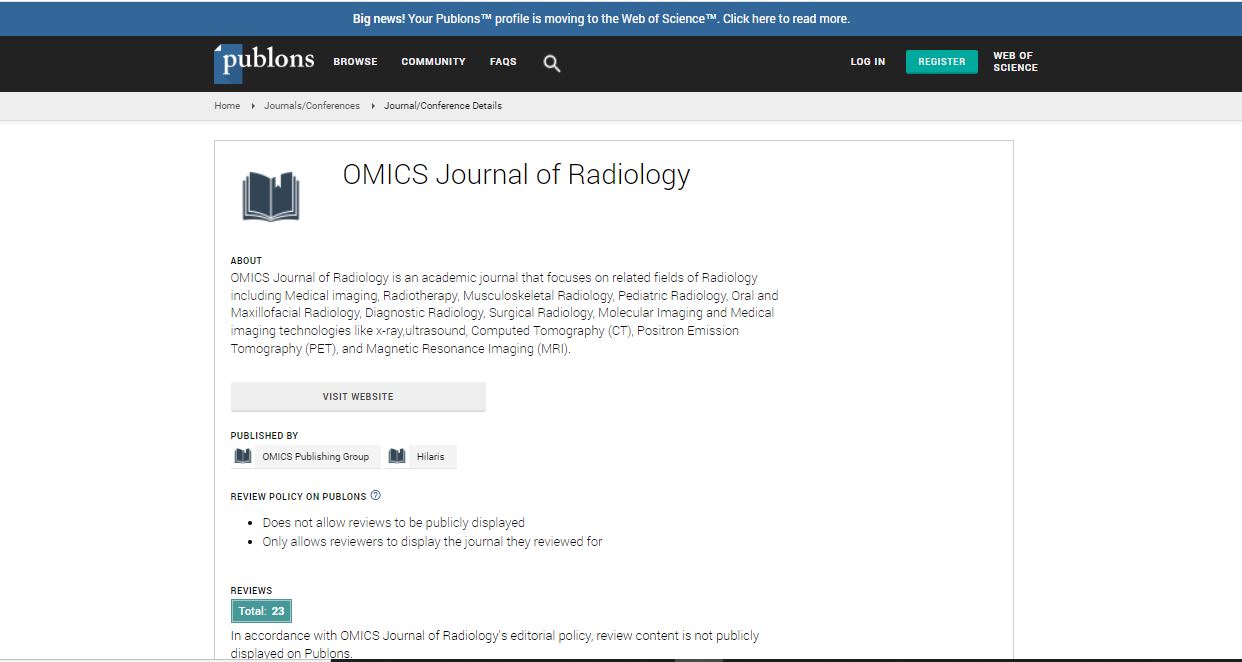Research Article
Accuracy of Cystosonography without Voiding Phase in the Diagnosis of Vesicoureteral Reflux in Children: A Variant of the Original Technique
| Carmela Visalli1*, Nunziella Sicilia1, Ignazio Salamone1, Roberto Chimenz2, Carmelo Fede2 and Stefania Mondello3 | |
| 1Department of Biomedical and Dental Sciences and Morphofunctional Imaging, Division of Radiology, University of Messina, Messina, Italy | |
| 2Department of Human Pathology of the Adult and Children and Adolescents, Division of Pediatric Nephrology and Dialysis, University of Messina, Messina, Italy | |
| 3Department of Biomedical and Dental Sciences and Morphofunctional Imaging, University of Messina, Messina, Italy | |
| *Corresponding Author : | Carmela Visalli Department Biomedical Sciences and of Morphologic and Functional Imaging Division of Radiology, University of Messina, Messina, Italy Tel: +39 0902212941 Fax: +39 090 2937427 E-mail: cvisalli@unime.it |
| Received date: February 08, 2016; Accepted date: March 21, 2016; Published date: March 24, 2016 | |
| Citation: Visalli C, Sicilia N, Salamone I, Chimenz R, Fede C, et al. (2016) Accuracy of Cystosonography without Voiding Phase in the Diagnosis of Vesicoureteral Reflux in Children: A Variant of the Original Technique. OMICS J Radiol 5:219. doi:10.4172/2167-7964.1000219 | |
| Copyright: © 2016 Visalli C, et al. This is an open-access article distributed under the terms of the Creative Commons Attribution License, which permits unrestricted use, distribution, and reproduction in any medium, provided the original author and source are credited. | |
Abstract
Background: Voiding urosonography (VUS) can assess vesicoureteral reflux (VUR) in children. However, during examination, the voiding phase may create management problems for the operator as well as psychological disorders for the patient.
Objective: To assess diagnostic accuracy of cystosonography with the Valsalva maneuver (Valsalvacystosonography) instead of voiding phases in the evaluation of VUR in children and compares this new technique with traditional VUS.
Materials and methods: A total of 41 kidney-ureter-units (KUU) were assessed in 22 children (11 girls and 11 boys, mean age 5.6 years old, range 4 to 9 years) who were referred to our Institution for evaluation of VUR. Clinical indications included urinary tract infection without pelvicalyceal and ureter dilatation, pelvicalyceal and ureter dilatation without urinary tract infection or both. Children were eligible if they were able to carry out the Valsalva maneuver. All patients were informed on how to perform the Valsalva maneuver before the exam was performed. Valsalva-cystosonography and VUS were consecutively carried out in the same patient. The voiding phase was performed by another examiner in all patients.
Results: VUR was detected in 16 (39%) of the 41 KUUs. In 15 KUUs (36.6%), reflux was detected with both methods. In 1 patient, grade II reflux was detected by VUS only. The agreement between VUS and Valsalvacystosonography was 0.96 (p < 0.0001), which indicates an “almost perfect agreement”. Taking the VUS as the reference standard, Valsalva-cystosonography had a sensitivity of 93.75% (95% CI 69.77% - 99.84%) and a specificity of 100% (95% CI 86.28% - 100%). The grade of VUR detected with Valsalva-cystosonography also showed moderate agreement with grading by voiding VUS [κ = 0.51, p = 0.002].
Conclusion: Our results demonstrate that the Valsalva-cystosonography is an effective approach for assessing VUR and support its potential use as an alternative to the traditional voiding phase.

 Spanish
Spanish  Chinese
Chinese  Russian
Russian  German
German  French
French  Japanese
Japanese  Portuguese
Portuguese  Hindi
Hindi 
